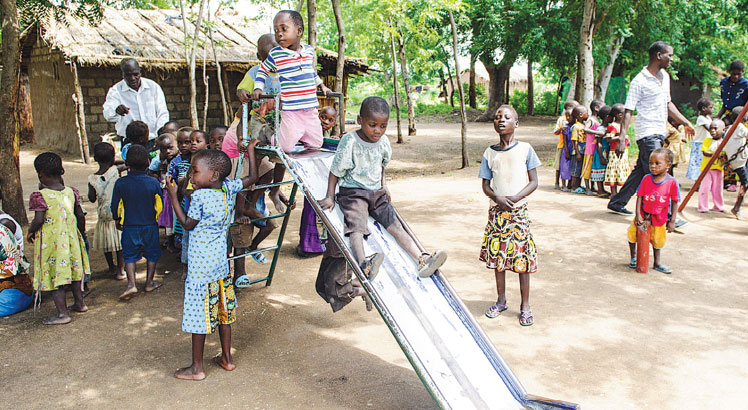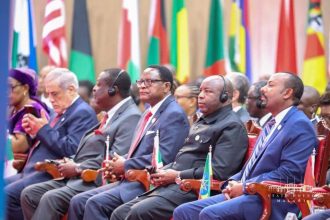Inequalities slow early childhood development
Disparities in early childhood development (ECD) centres are denying young Malawians a quality start in life.
“We have a beautiful building, but we lack potable water,” Kachinga Community-based Child Care Centre (CBCC) chairperson Margaret Phiri tells members of the Parliamentary Committee on Education.
Caregivers at the centre in Mchinji District wake up as early as 2am to fetch water for the children.
Last month, the lawmakers visited Kachinga, Chisomo and Chimbadzo CBCCs with support from Unicef through the Non-Governmental Organisations Coalition on Child Rights.
The trip brought the parliamentary committee face to face with inequalities in the preschool centres.

Kachinga Model CBCC in Traditional Authority (T/A) Nyoka was constructed by Zikomo Foundation.
It has nearly all the necessary structures, including spacious rooms for ECD activities, a play centre, reading aids and child-friendly.
However, it lacks clean water, kitchen utensils, toys and learning materials.
By contrast, Chisomo Model CBCC in TA Zulu, one of the 15 centres in the district built under the Investing in Early Years Project (IEYP) supported by the World Bank lacks a dedicated play centre.
Children at the centre receive porridge during their stay to boost their nutritional health.
Mentor caregiver Christina Shumba underscored the need for learning and play materials as well as financial incentives for caregivers who volunteer in CBCCs.
“We have challenges, but at least there is a better structure. Our children no longer use a leaky grass-thatched hut as was the case previously,” she says.
At Chimbadzo, local communities built a two-room structure using unbaked bricks bound by mud.
The grass-thatched facility represents the community’s determination to ensure every child gets a solid foundation for better chances in life.
The disparities deprive the children of quality early childhood development, which prepares the child for a better future.
Thyolo Thekerani legislator Mavuto Scott says more needs to invest more resources to reduce inequalities in ECD.
Although other countries in Southern Africa have made great strides, Malawi lags behind because ECD does not receive the necessary attention and resources.
Scott called up the need to provide a full ECD package, including essential materials and remuneration for caregivers.
“There is a need to engage all the organisations interested in ECD. When asking for support, they should insist on a full package with all the required aspects,” he says.
Mchinji District has 507 CBCCs and 424 of them are run by the government.
Only 96 of these centres boast adequate infrastructure, meaning four in every five lack basics.
Of the 1 850 caregivers, only 478 are trained.
Ministry of Gender, Community Development and Social Welfare chief child affairs officer Martha Chiwanda says this calls for professional development of caregivers so that children do not get a raw deal.
“I hope that the parliamentary committee’s visit will amplify calls for increased funding for ECD,” she states.
Parliamentary Committee on Education chairperson Brainax Kaise says low funding for CBCCs is the major barrier to early childhood development.
He said his oversight committee will work with its counterparts responsible for social welfare, health and agriculture to lobby for increased funding.
“ECD encompasses much more than just learning. It also includes nutrition and sanitation. We have seen the situation on the ground and my committee will present a true picture to the House,” he said.
Desmond Mhango, chairperson of the child rights coalition, urged Parliament to increase the budget for child-related services.
To him, child-friendly budgeting is an investment, not a burden on the economy.
“The members of Parliament have seen for themselves what is provided. The next move is to speak to the Executive and Parliament so that they understand the call for increased budget for ECD,” says Mhango.
The three CBCCs in Mchinji expose ECD struggles in Malawi despite rising awareness that the future of the nation hinges on the well-being and development of its youngest citizens.





